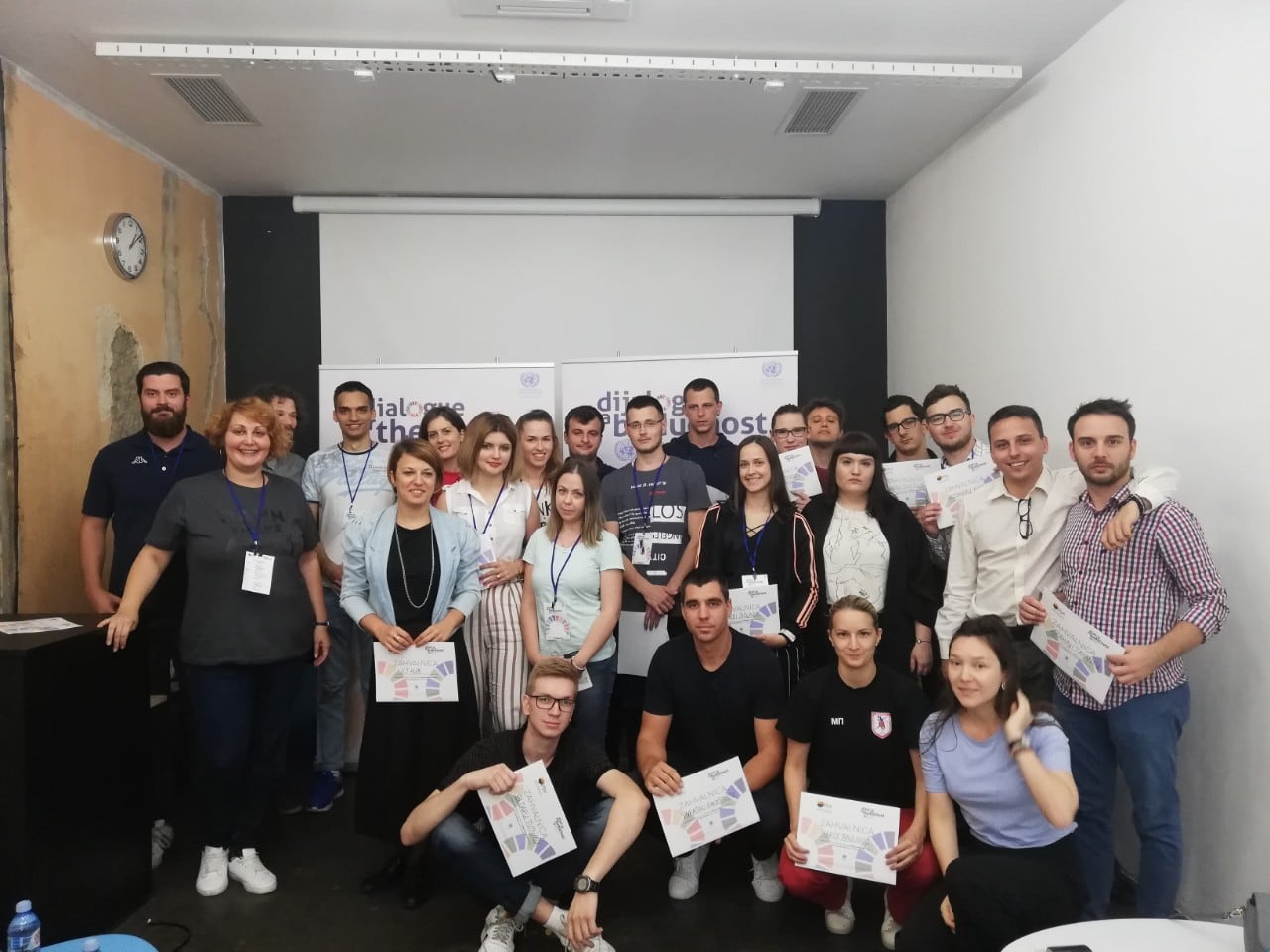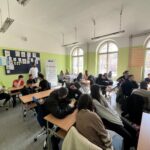Photos: Svetlana Stefanović/BFPE
The Belgrade Fund for Political Excellence, together with the United Nations Development Program (UNDP), organized the first Hackathon within the project “Dialogue for the Future” at the ICT Hub on July 12-14.
After the selection of 20 young developers, designers, activists, influencers, bloggers and vloggers from Bosnia and Herzegovina, Montenegro and Serbia, teams gathered to work together for 24 hours in order to create a concrete solution, with the aim of improving social cohesion, dialogue and exchange of views among young people.
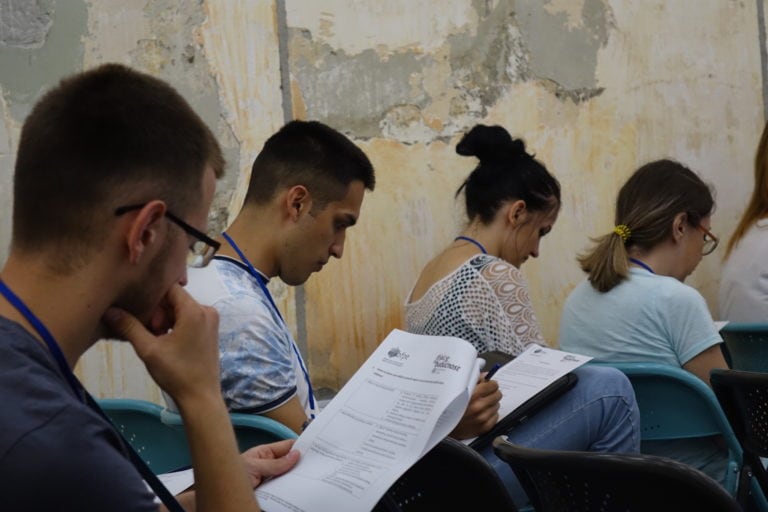
Project Coordinator Svetlana Stefanović welcomed the participants, introduced the participants with the planned activities under the “Dialogue for the Future” project and officially opened the Hackathon. She stressed the importance of talking, sharing ideas and thinking, but also networking as a basis for further cooperation between young people in the region.
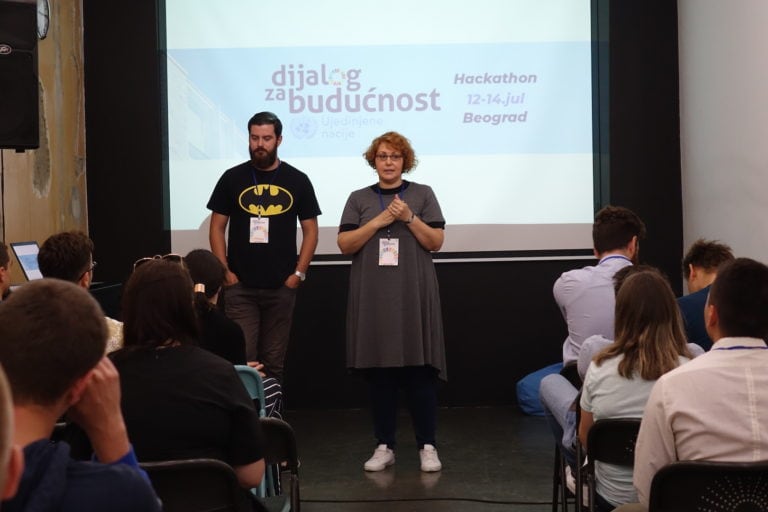
The participants started to develop their ideas within 24 hours, in four teams, consisting of 4 to 5 members: two developers, one designer and two activists.
Through the whole process, the selected teams had the support of their mentors: Maša Milutinović and Uroš Krčadinac from Serbia, Feđa Stojanović from Bosnia and Herzegovina and Vukašin Rakočević from Montenegro.
After the opening, the mentors introduced the participants with the hackathon rules and explained what they should focus on while developing their ideas. Participants were provided with information on all the steps that needed to be taken to make concrete solutions and products from their chosen idea.
In the first hours of the hackathon, the selected teams were trying to figure out the idea which they are going to develop and implement in the future. With the help of mentors, they decided in which direction they would like to go, depending on perceived problems, affinity and its interest.
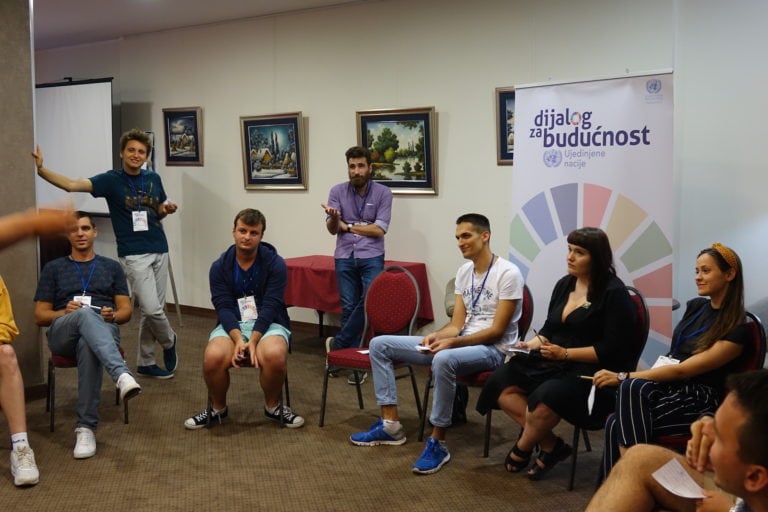
After 24 hours of work, the teams managed to take their initial idea into more concrete action in order to make it possible to happen in reality.
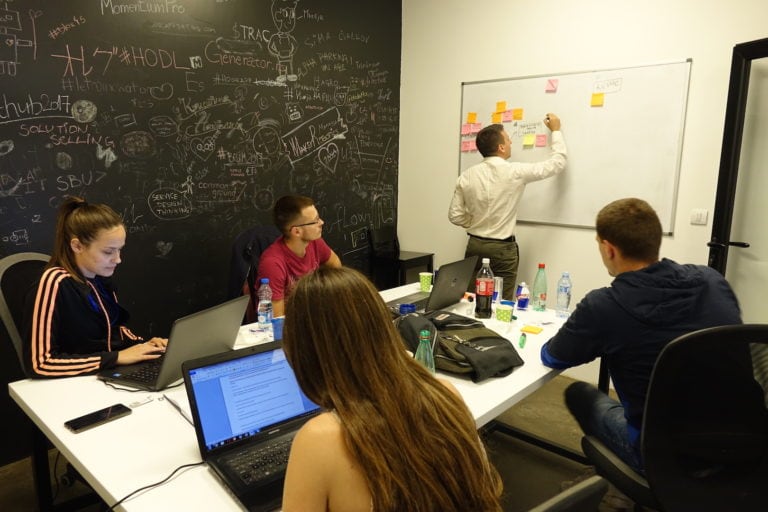
The first team worked on a solution that addressed environmental issues at the local communities. They designed „Ekostraža“, a unique web platform and application, which aim will be to carry out various environmental actions, gathering young people at the local level who would contribute to joint activities on the environmental protection.
The second team devised an innovative solution in the form of „Vodobran“, application that addresses the topics of water pollution and early warning of pollution levels in all watercourses, in all the three countries. The application should raise awareness of the importance of water care, as a resource that can be seriously threatened in the future.
The third team focused on the issue of violence against women in the region, offering a solution to provide young women with information on what violence is and how to recognize it, as well as sharing stories of those who had experienced violence. The web platform „Nisi sama” should contribute in further networking and mutual support among young women.
The latest idea, the „E-kooperativa“ application, is designed to help small farmers to connect and network with an online platform in order to make their products more accessible to more users. This would help small producers and thus support the stay of young people on farms.
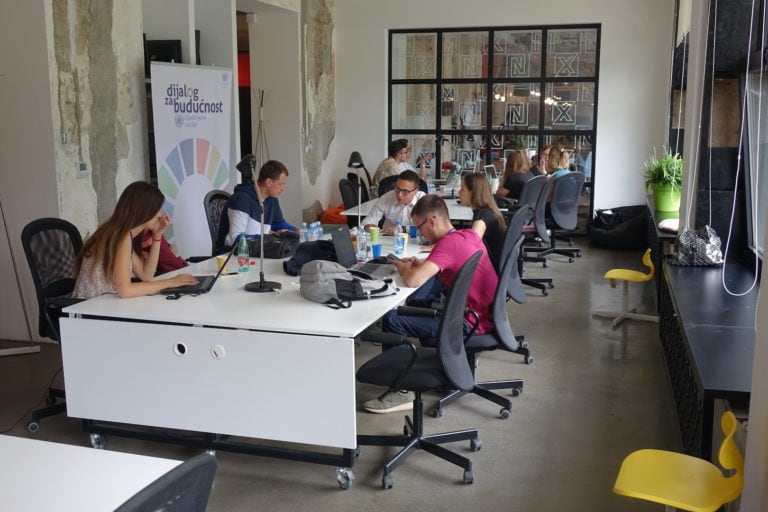
The participants presented their ideas to a jury consisting of representatives of ICT Hub, UNICEF Serbia, mentors and BFPE representatives. The members of the jury had a difficult task, but they chose 2 solutions as the best, with envisaged further elaboration, with the support of their mentors. The teams „Ekostraža“ and „Nisi sama“ will continue to work in the coming months, and the best team will be able to present its idea during the Belgrade Security Forum, which will be held from 16 to 18 October.
The hackathon was organized under the regional program “Dialogue for the Future: Fostering Dialogue and Social Cohesion in Bosnia and Herzegovina, Montenegro and Serbia”, implemented by UNDP, UNICEF and UNESCO, financed by the UN Peacebuilding Fund (PBF). For more information on the program “Dialogue for the Future”, visit http://bit.ly/JRP-DFF.


